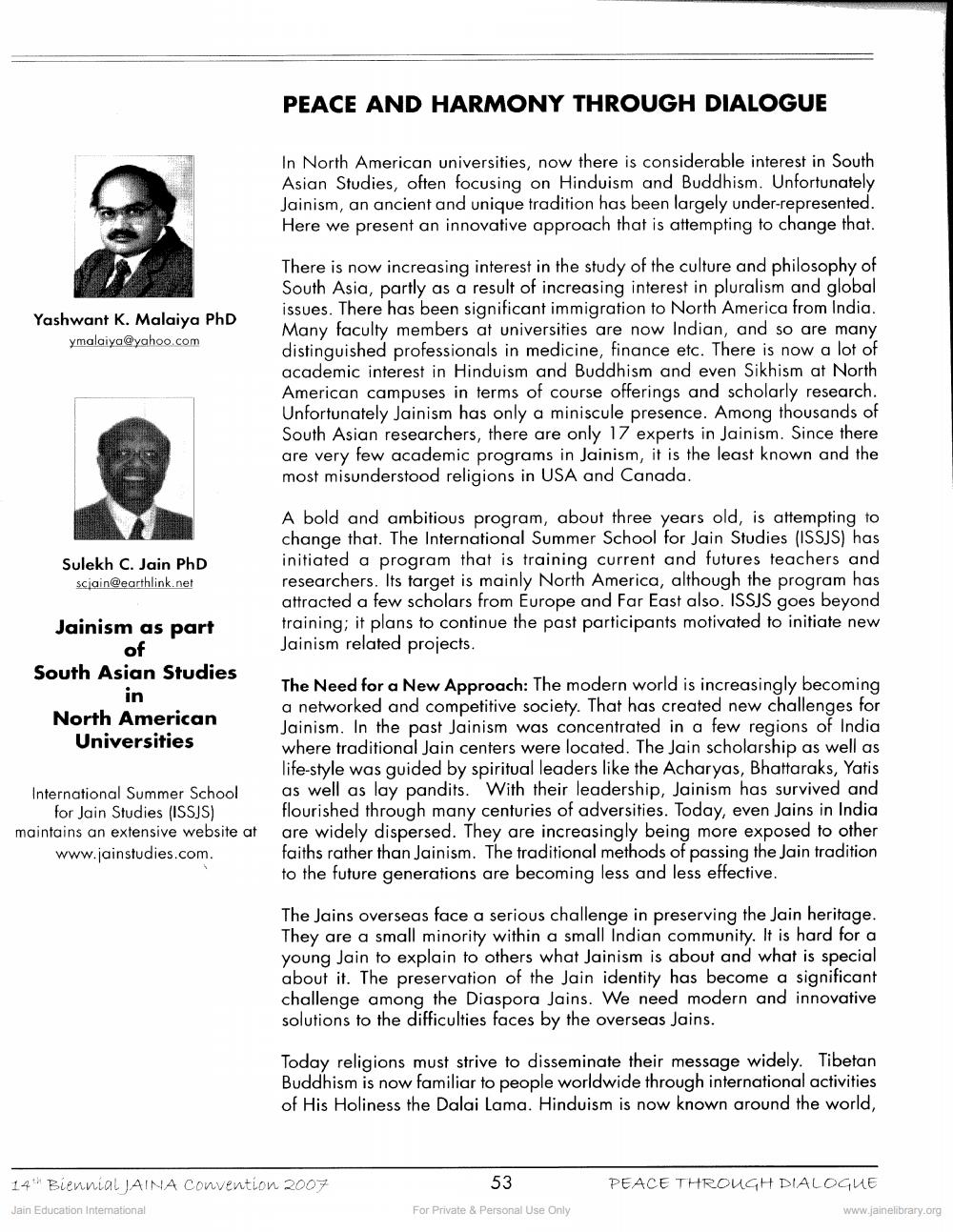________________
Yashwant K. Malaiya PhD
[email protected]
Sulekh C. Jain PhD
[email protected]
Jainism as part of South Asian Studies in
North American Universities
PEACE AND HARMONY THROUGH DIALOGUE
In North American universities, now there is considerable interest in South Asian Studies, often focusing on Hinduism and Buddhism. Unfortunately Jainism, an ancient and unique tradition has been largely under-represented. Here we present an innovative approach that is attempting to change that.
There is now increasing interest in the study of the culture and philosophy of South Asia, partly as a result of increasing interest in pluralism and global issues. There has been significant immigration to North America from India. Many faculty members at universities are now Indian, and so are many distinguished professionals in medicine, finance etc. There is now a lot of academic interest in Hinduism and Buddhism and even Sikhism at North American campuses in terms of course offerings and scholarly research. Unfortunately Jainism has only a miniscule presence. Among thousands of South Asian researchers, there are only 17 experts in Jainism. Since there are very few academic programs in Jainism, it is the least known and the most misunderstood religions in USA and Canada.
A bold and ambitious program, about three years old, is attempting to change that. The International Summer School for Jain Studies (ISSJS) has initiated a program that is training current and futures teachers and researchers. Its target is mainly North America, although the program has attracted a few scholars from Europe and Far East also. ISSJS goes beyond training; it plans to continue the past participants motivated to initiate new Jainism related projects.
The Need for a New Approach: The modern world is increasingly becoming a networked and competitive society. That has created new challenges for Jainism. In the past Jainism was concentrated in a few regions of India where traditional Jain centers were located. The Jain scholarship as well as life-style was guided by spiritual leaders like the Acharyas, Bhattaraks, Yatis as well as lay pandits. With their leadership, Jainism has survived and flourished through many centuries of adversities. Today, even Jains in India
International Summer School for Jain Studies (ISSJS)
maintains an extensive website at are widely dispersed. They are increasingly being more exposed to other
www.jainstudies.com.
faiths rather than Jainism. The traditional methods of passing the Jain tradition to the future generations are becoming less and less effective.
The Jains overseas face a serious challenge in preserving the Jain heritage. They are a small minority within a small Indian community. It is hard for a young Jain to explain to others what Jainism is about and what is special about it. The preservation of the Jain identity has become a significant challenge among the Diaspora Jains. We need modern and innovative solutions to the difficulties faces by the overseas Jains.
Today religions must strive to disseminate their message widely. Tibetan Buddhism is now familiar to people worldwide through international activities of His Holiness the Dalai Lama. Hinduism is now known around the world,
14th Biennial JAINA Convention 2007
Jain Education International
53
For Private & Personal Use Only
PEACE THROUGH DIALOGUE
www.jainelibrary.org




